Like most college students, the thought of an internship where he collated copies and fetched coffee was enough to make Michael Zalewski want to explode -- or at least vent. But thanks to a series of student experience programs sponsored by the Department of Defense, he gained pragmatic engineering experience doing both: exploding and venting.
While working as an engineer in the U.S. Army Communications-Electronics Research, Development and Engineering Center environmental test lab, Zalewski, a senior at Norwich University in Northfield, Vt., saw a way to increase safety assurance for the Warfighter by improving a test apparatus for violent battery venting.
Zalewski's experience in the CERDEC Command and Control Directorate Quick Reaction and Battle Command Support Division is just one example of the developmental opportunities available to students throughout the region as CERDEC relocates its mission to Aberdeen Proving Ground, Md.
"Rapid battery venting can have devastating effects. When rechargeable batteries rapidly release gas, the pressure release can physically damage the battery compartment and potentially injure the operator," said Zalewski.
"The Army has gone to great lengths to test for safe venting, but with the increase of smaller, battery-dependent equipment, we need to assess high pressure in smaller compartments," said Zalewski. "I designed a valve system that will help simulate a battery cell catastrophically bursting in these conditions."
After finishing a fluid dynamics course, Zalewski saw an opportunity to apply classroom lessons to a real-world situation and vice versa. He proposed the valve system as part of his senior project, and CERDEC agreed to sponsor him.
"This is a wonderful opportunity because he's going to gain practical experience and develop something that actually gets used," said Joe Ryan, division chief, QR&BCS.
"Generally, engineering students get fun assignments for their senior projects, but it's not necessarily real-world experience," said Ryan. "When I was in college, I was very fortunate to have a real-world project where I had to meet the needs of an outside client, and I can tell you that the experience was invaluable to my career and getting me to where I am today."
By the end of the project, Zalewski will have gone through the full engineering management process: he will have proposed a plan, presented designs, led a team, maintained a schedule and a budget, overseen fabrication and assembly, provided regular updates and produced a working deliverable.
"It's a microcosm of any typical engineering project that we would do in the division," said James Sroczynski, special assistant to the division chief, QR&BCS.
This is a win-win situation, according Sroczynski, because Zalewski gets to work on a project he is passionate about, knowing CERDEC will apply it when it is successful. CERDEC will benefit from having a more advanced, more reliable test fixture.
Zalewski began participating in the student experience programs in 2003 when he was still a high school student at the Marine Academy of Science and Technology, Sandy Hook, N. J. The Science and Engineering Apprentice Program allowed Zalewski and other middle-school through college students to earn stipends while working closely with DoD scientists and engineers at Fort Monmouth.
Next, he was accepted into the Student Temporary Employment Program, a flexible, one-year program with pay for high school and college students who are either enrolled or accepted for enrollment as degree-seeking students.
From there, Zalewski became part of the Student Career Experience Program that offers cooperative employment and mentorship directly related to the student's academic program and career goals. Once a student meets all SCEP requirements, he or she has the potential to be converted into a full-time, federal government position.
Within the past year, he was converted to the Career Related Experience in Science and Technology program, which is similar to SCEP but funded by the Army Materiel Command. Upon completion of CREST, Zalewski has the offer to be noncompetitively converted to a position with the federal government.
"I definitely recommend these programs to other engineering students around the country," said Zalewski. "Each of them offers a wide range of hands-on experiences that can be applied to more than one specialty, so over the past five years, I've experienced things that most college engineering students only wish they could. The programs have given me an edge in the classroom and helped me define the direction I wish to pursue."
Ryan said CERDEC has a vested interest as an institution in making every program participant "the best engineer possible."
"When we can make a better engineer, we make better products for the Army in general," said Ryan.
"We hope that his (Zalewski's) experiences here will help him to produce quality designs, efficient processes and effective products," said Ryan, "and we hope that it prepares him to one day be not just a manager, but a better manager. That's why we try from the very beginning to make the students 'better employees.'"
As the organization executes its move to APG, CERDEC Director Gary Blohm says he looks forward to building relationships with regional universities and providing opportunities to students in Maryland, Delaware, Pennsylvania, Virginia and the greater Washington D.C. area.
"We're looking to support the development of bright, dedicated individuals in the fields of science and technology," said Blohm. "It's important for students to get exposure to invaluable research and have that practical experience on their resume. Whether it's with CERDEC or another Army organization, I highly recommend students to take advantage of DoD-sponsored programs such as STEP and SCEP."
Blohm said the Army's research and development community has a lot to offer those interested in science, math and engineering.
"We want students to think about more than just basic training whenever someone suggests career opportunities with the Army. They need to realize that they can get high-paying, satisfying jobs working on important, relevant technologies in state-of-the-art laboratories," said Blohm.
Zalewski said the programs have changed his perception of the Army.
"Typically, the average person gives little thought to the technological and logistical support which enables our armed forces," said Zalewski.
"I never realized the magnitude and significance of the civilian workforce behind our armed forces," said Zalewski. "I now understand the degree to which efforts are made to ensure that the systems provided to our Warfighters are the most technically advanced and safest available. It's truly a team effort."
Zalewski's team met all of their first-semester goals, and this semester they began assembling the apparatus and performing preliminary testing in the university lab.
So far, the results have been promising as tests have shown that Zalewski's design will be at least comparable, if not faster, than empirical results of the current apparatus used by the environmental test lab.
Full-scale testing took place in C2D's environmental test lab during spring break, when Zalewski's team traveled to Fort Monmouth. His final presentation is scheduled for early-May, but regardless of the outcome, Zalewski has a guaranteed job offer.
"The program is non-binding, so he doesn't have to accept our offer. He's free to go to the private sector or another government organization, if he wishes," said Ryan. "We hope, however, he has a genuine excitement about working for the Army and that when he does graduate, he'll work for us."
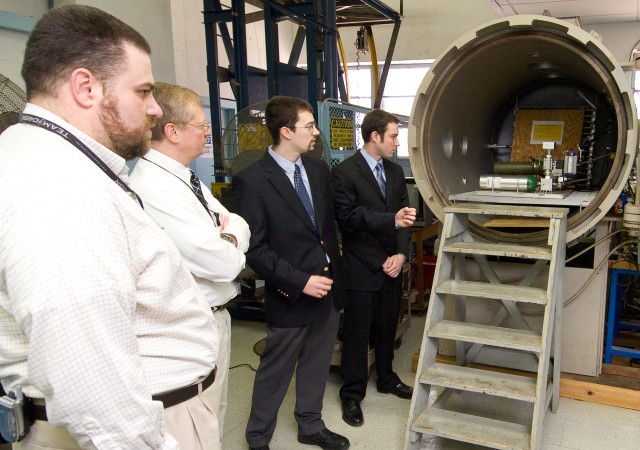
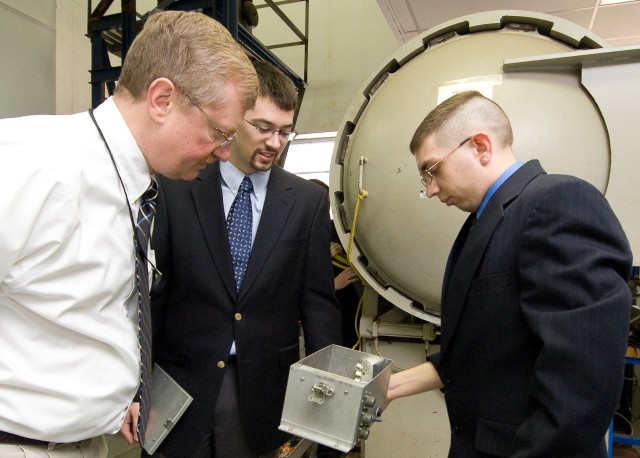
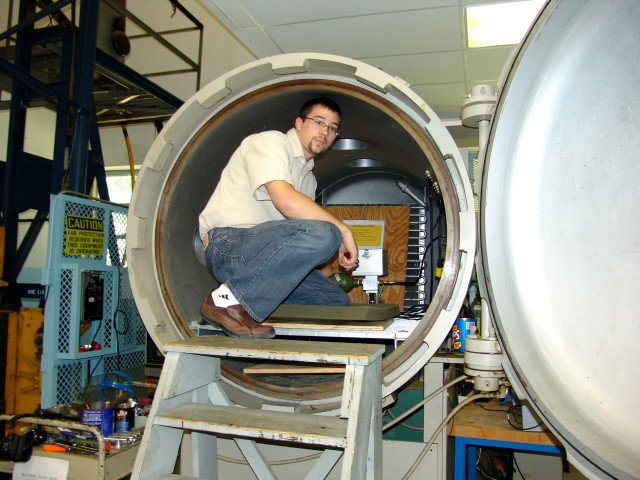
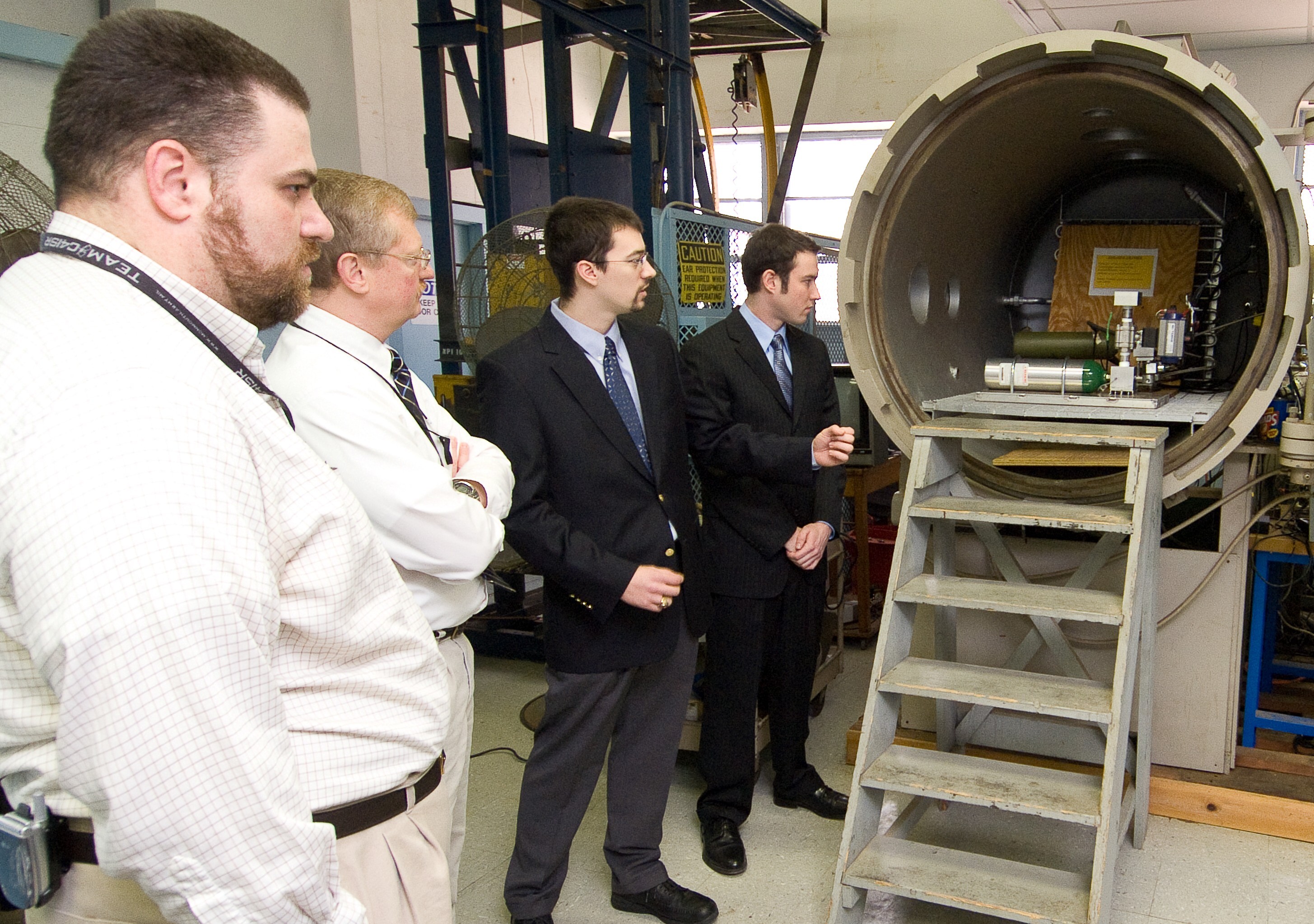
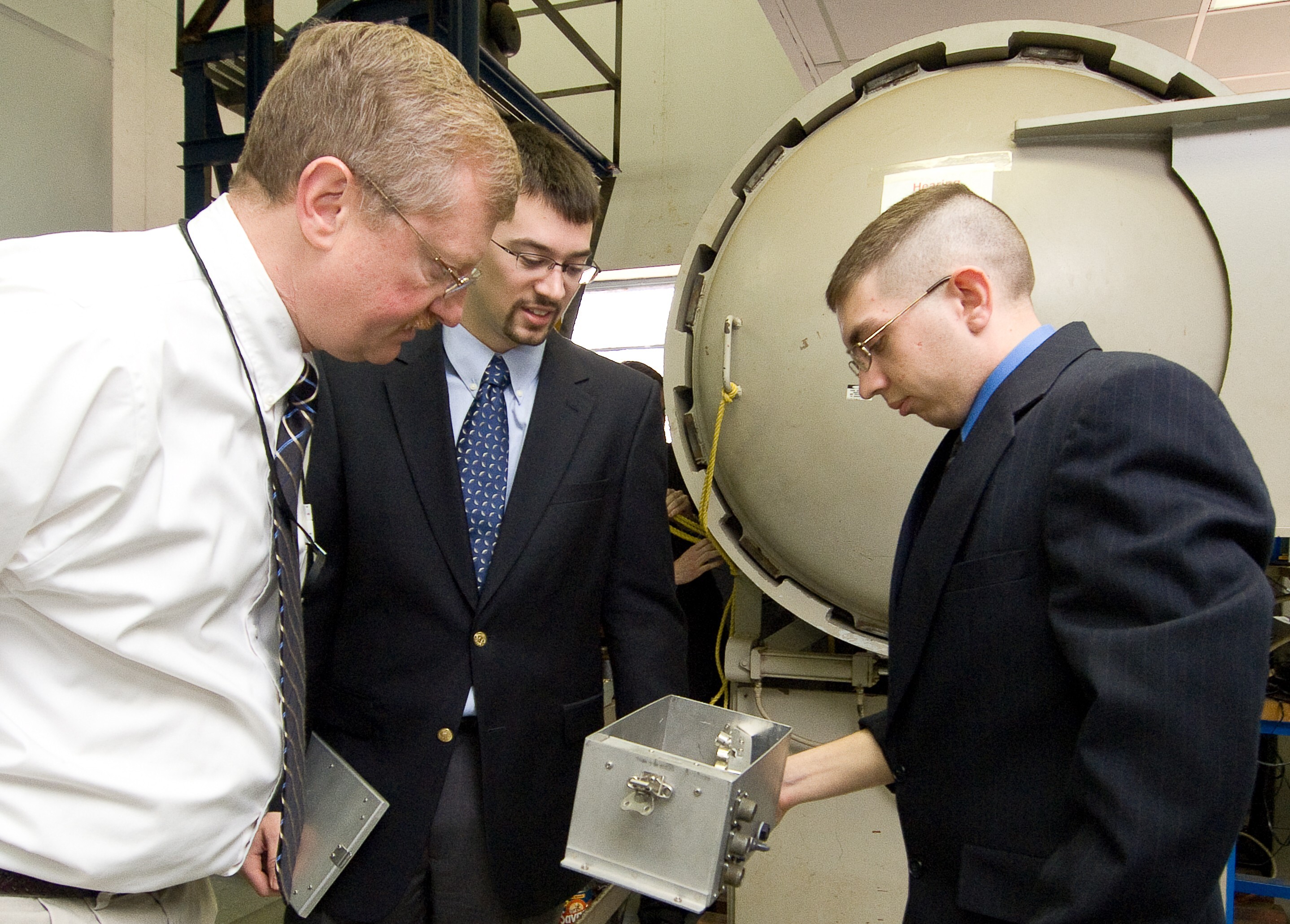
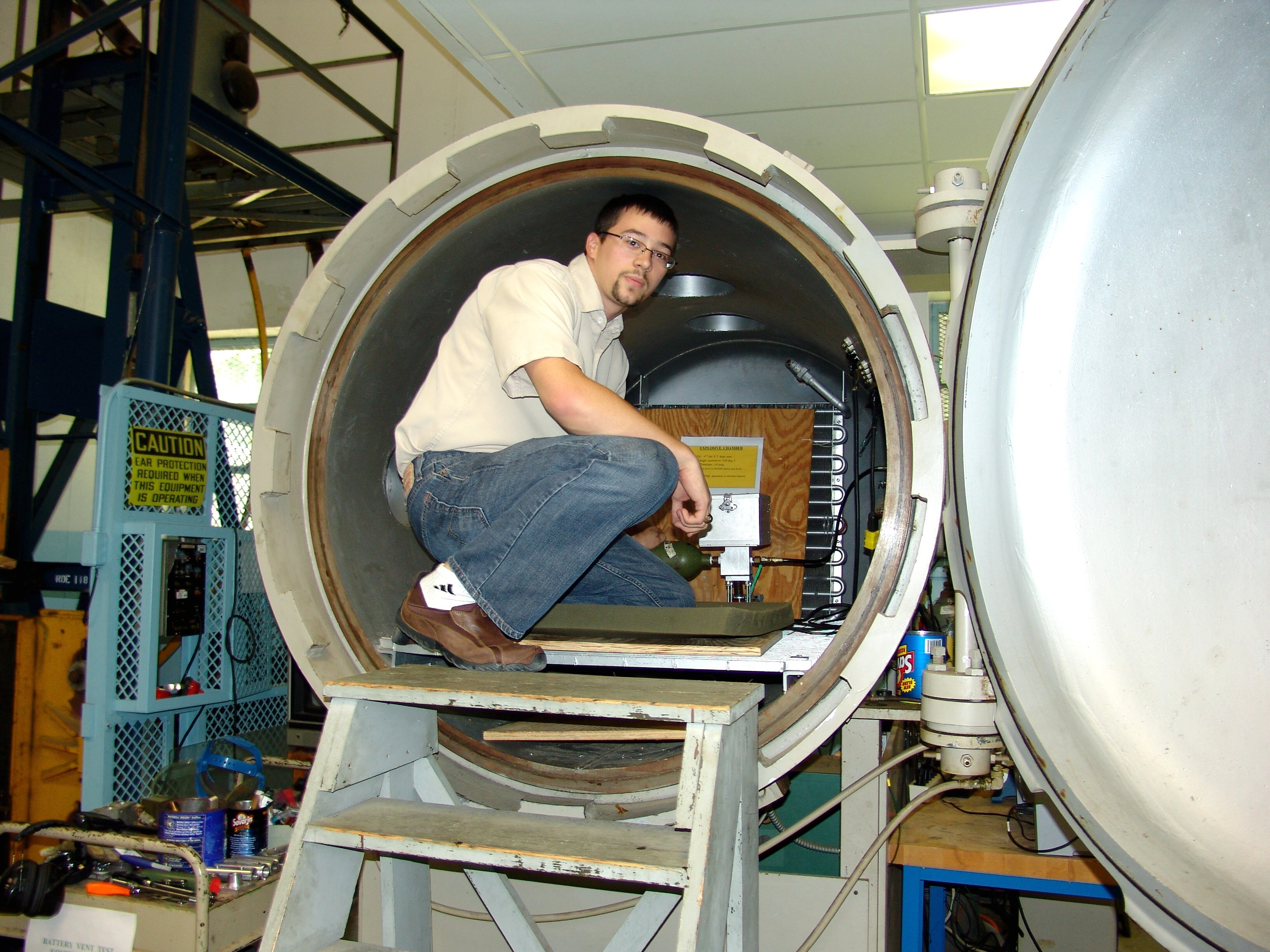
Social Sharing